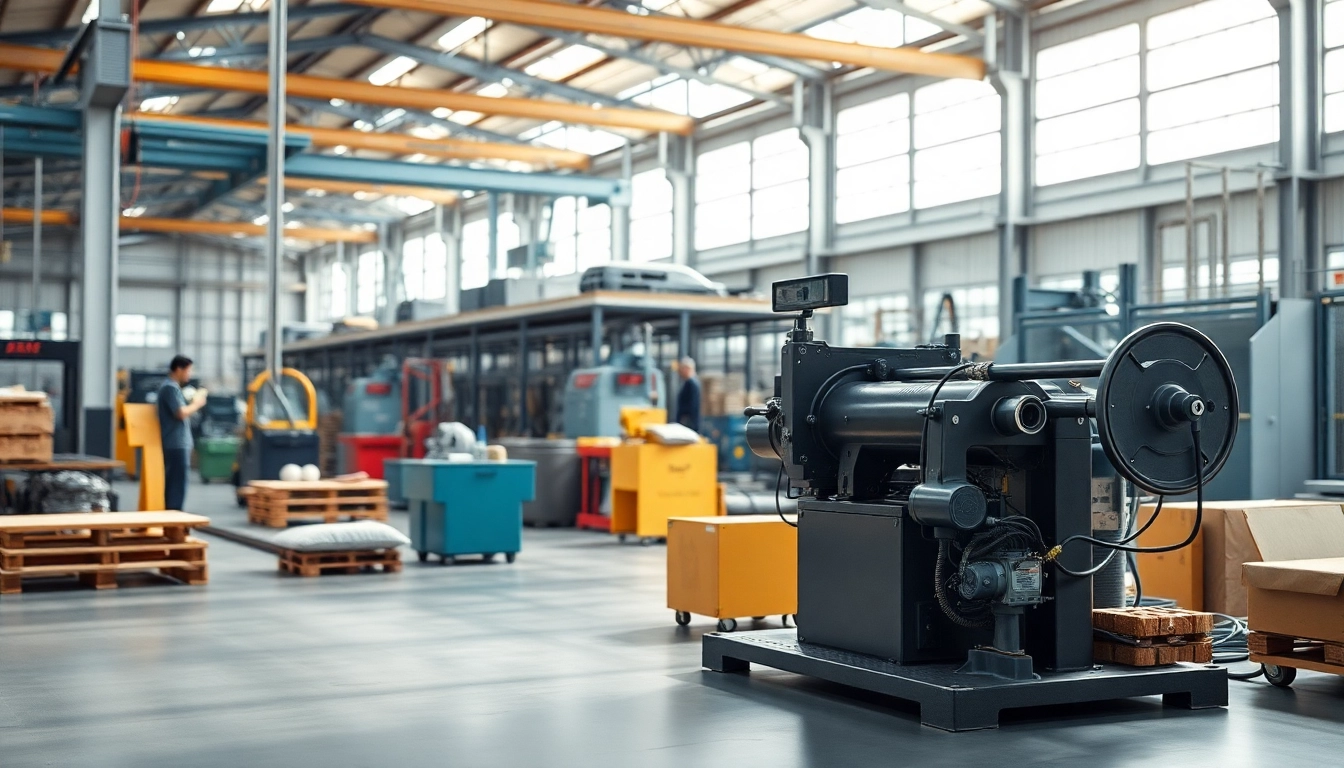Understanding Filling Machines
What is a Filling Machine?
A filling machine is an industrial device designed to fill containers with liquids, powders, or solids, streamlining the process of packaging products for various industries. These machines are invaluable across sectors ranging from food and beverage to pharmaceuticals and chemicals. By ensuring accurate measurements and efficient operation, filling machines enhance productivity, reduce labor costs, and improve product quality. Modern innovations have made these machines more precise and versatile, adapting to the specific needs of different products and packaging types.
Types of Filling Machines Available
Filling machines come in various types, each suited for specific applications and product characteristics. Some of the primary categories include:
- Liquid Filling Machines: Ideal for beverages, motor oils, and chemicals. They can be further divided into subtypes such as volumetric, gravimetric, and piston fillers, each providing different methods of measurement and filling.
- Powder Filling Machines: Used for products like flour, spices, and pharmaceuticals. They can handle fine or coarse powders and often require additional components to avoid clumping.
- Paste Filling Machines: Suitable for thick products such as creams, gels, and toothpaste, often employing piston filling mechanisms for increased accuracy and control.
- Granule Filling Machines: Designed for packing small, solid particles like sugar, rice, and seeds. These machines ensure precise amounts are filled into containers without leakage or waste.
Choosing the right type of filling machine depends on several factors, including the product’s nature, viscosity, and the desired filling speed.
Applications in Different Industries
Filling machines play a crucial role in diverse industries:
- Food and Beverage: Used for bottling drinks, filling jars with sauces, and packaging dry goods.
- Pharmaceutical: Important for accurately dosing medications into vials and syringes, ensuring compliance with strict health regulations.
- Cosmetics: Essential for filling creams and lotions into containers with precision.
- Chemicals: Used for packaging industrial chemicals and lubricants, where accurate filling is vital for safety and compliance.
Selecting the Right Filling Machine Manufacturer
Key Factors to Consider
When choosing a filling machine manufacturer, consider several critical factors:
- Experience and Reputation: Look for manufacturers with a proven track record in the industry and positive customer reviews.
- Customization Options: Choose a manufacturer that allows for machine customization to meet your specific needs.
- Technical Support and Maintenance: Assess the level of post-purchase support, including maintenance services, warranty policies, and availability of spare parts.
- Technology and Innovation: Consider manufacturers who invest in the latest technology, enhancing the efficiency and capabilities of their machines.
- Regulatory Compliance: Ensure that the manufacturer meets all applicable health, safety, and environmental standards.
Top Manufacturers in the Market
Several companies are recognized for their excellence in manufacturing filling machines, including:
- Accutek Packaging Equipment Company, Inc. – A leader in manufacturing various filling equipment for a wide array of products.
- Cozzoli Machine Company – Known for high-quality filling and capping machines suited for diverse applications.
- Volumetric Technologies – Specializes in American-made filling machines and offers customized solutions.
- E-PAK Machinery – Offers a strong lineup of filling, labeling, and capping machines tailored for the bottling industry.
Getting the Best Value for Your Investment
To ensure that you are making a wise investment, perform thorough research and possibly request demo machines to assess functionality and effectiveness. Always weigh the long-term operational costs against initial purchase prices.
Innovations in Filling Machine Technology
Automation and Efficiency Trends
Automation has revolutionized the manufacturing space, and filling machines are no exception. Recent trends include:
- Integrated Systems: Many manufacturers are offering complete systems that include filling, capping, and labeling machines, streamlining production lines.
- Smart Technologies: IoT (Internet of Things) devices are increasingly used in filling machines, enabling manufacturers to monitor performance metrics remotely.
- Robotics: Robotic arms are becoming standard in filling processes, providing consistent and efficient operation while minimizing human error.
Eco-Friendly Solutions in Filling Machines
The growing emphasis on sustainability has led manufacturers to develop eco-friendly filling machines. These solutions are designed to minimize waste, utilize less energy, and incorporate recyclable materials into their construction.
Future Trends to Watch in Filling Technology
As the industry evolves, we can expect innovations such as enhanced adaptive machines that can quickly switch between different product types, advanced AI algorithms optimizing production lines, and continued integration of eco-friendly materials and processes.
Maintenance and Support for Filling Machines
Routine Maintenance Tips
To maximize lifespan and efficiency, regular maintenance is crucial. Here are some tips:
- Schedule consistent cleaning to avoid contamination and mechanical malfunction.
- Regularly inspect and replace worn parts such as seals and gaskets.
- Keep the machine’s software updated to enhance functionality and security.
Identifying Common Issues
Many filling machines may face issues such as:
- Incorrect Fill Levels: Often caused by calibration issues or faulty sensors.
- Machine Jams: Regular checks can help identify potential clogs before they occur.
- Inconsistent Speeds: This may indicate motor or conveyor problems that require immediate attention.
Manufacturer Support Services
Choose manufacturers who offer robust support services, including installation assistance, troubleshooting guides, and 24/7 customer service, ensuring your operation runs smoothly with minimal downtime.
Case Studies: Success Stories from Filling Machine Users
Industry Insights from Leading Companies
Companies across industries have reported increased efficiency and reduced operational costs after implementing advanced filling machines. These case studies showcase how innovative technologies improve productivity and reduce waste while maintaining product integrity.
Real-World Applications of Filling Machines
From bottling beverages to packaging pharmaceutical products, filling machines adapt to various applications, demonstrating flexibility and efficiency across different production lines.
Lessons Learned and Best Practices
Through their experiences, companies have identified several best practices, such as conducting thorough due diligence when selecting a manufacturer, investing in quality over price, and prioritizing ongoing training for staff to harness the full potential of their machinery.
